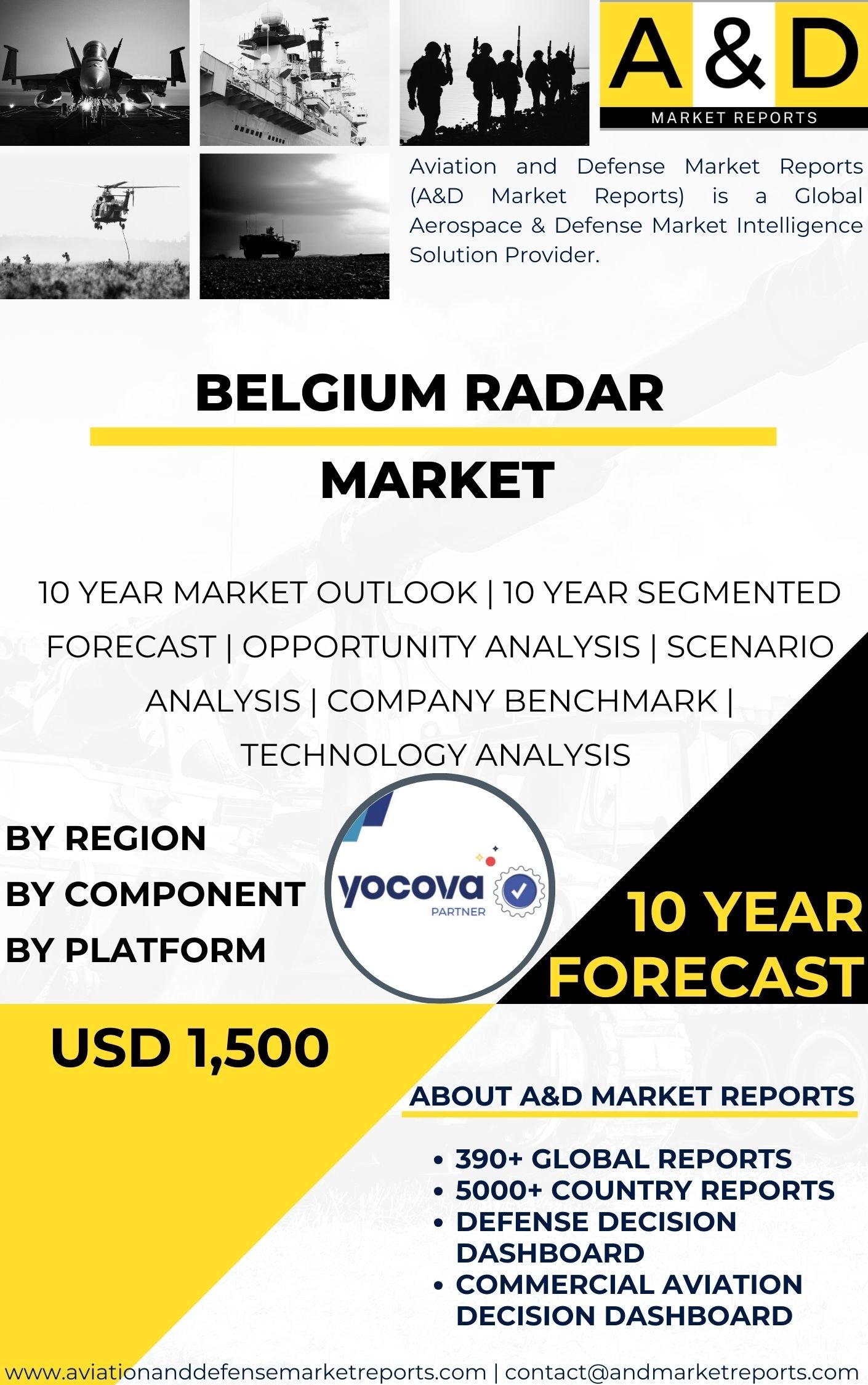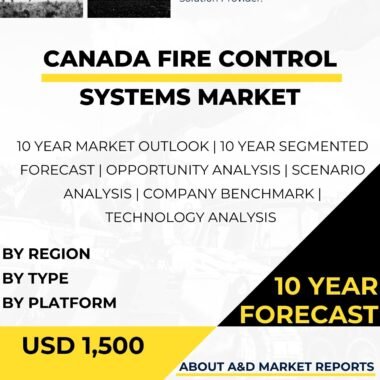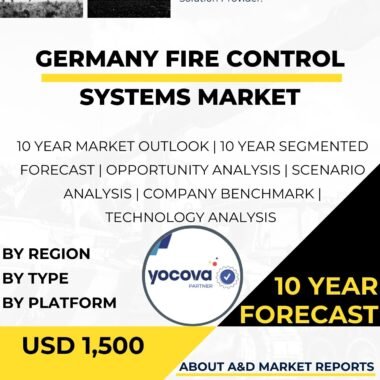Description
The Belgium radar market is a significant segment within the country’s defense industry. Radars play a crucial role in detecting and tracking objects in the air, on land, and at sea by emitting radio waves and analyzing the signals reflected by the targets. Belgium recognizes the importance of advanced radar systems in enhancing its situational awareness, supporting surveillance activities, and ensuring the effectiveness of its defense capabilities.
The primary driver for the Belgium radar market is the need for reliable and high-performance radar systems that can accurately detect, track, and classify targets in various environments. Radars are essential for military operations, air traffic control, weather monitoring, maritime surveillance, and other applications. Belgium’s focus on advanced radar technologies is driven by the need to enhance its defense capabilities, protect national interests, and contribute to collective security efforts.
Belgium’s domestic defense industry plays a significant role in the development, production, and integration of radar systems. Belgian companies, such as Thales Belgium and Barco, have expertise in radar technologies and contribute to the country’s defense capabilities. These domestic capabilities foster innovation, create job opportunities, and contribute to the economic growth of the Belgium radar market.
Collaborations with international partners and suppliers are also significant for the Belgium radar market. Belgium often engages in partnerships with defense companies from NATO member states and other allied nations to access advanced radar technologies, benefit from joint development programs, and ensure interoperability with allied forces. These collaborations enable Belgium to leverage global advancements in radar systems, enhancing its defense capabilities and strengthening collective defense.
Furthermore, Belgium’s participation in multinational defense initiatives influences the radar market. Collaboration within NATO and other international defense cooperation programs fosters interoperability, joint training exercises, and the exchange of best practices. This cooperation ensures compatibility and enhances operational effectiveness when conducting joint military operations with allied forces.
The Belgium radar market faces challenges such as technological advancements, coverage requirements, and cost-effectiveness. Technological advancements in radar systems, including improved target detection capabilities, higher resolution imaging, and advanced signal processing algorithms, require continuous research and development efforts. The Belgium market needs to stay at the forefront of innovation to provide state-of-the-art radar systems that meet evolving defense requirements.
Coverage requirements are crucial in radar systems. Belgium’s defense industry must ensure that its radar systems provide adequate coverage in different environments, including land, sea, and air. Flexibility, adaptability, and the ability to detect various types of targets are essential characteristics for radar systems to effectively fulfill their missions.
Cost-effectiveness is an important consideration in the acquisition and maintenance of radar systems. Belgium’s defense industry must carefully manage defense budgets and allocate resources prudently. The cost of developing, producing, and maintaining radar systems should be balanced against the need for advanced capabilities, ensuring a cost-effective approach without compromising operational effectiveness.
In conclusion, the Belgium radar market is a significant segment within the country’s defense industry. Advanced radar systems provide critical capabilities for detection, tracking, and surveillance in various operational environments. Domestic capabilities, collaborations with international partners, and Belgium’s participation in international defense initiatives drive the growth and development of the radar market. As defense requirements evolve and technological advancements continue, the demand for advanced and versatile radar systems is expected to increase, fostering innovation, collaboration, and economic growth within the sector.




